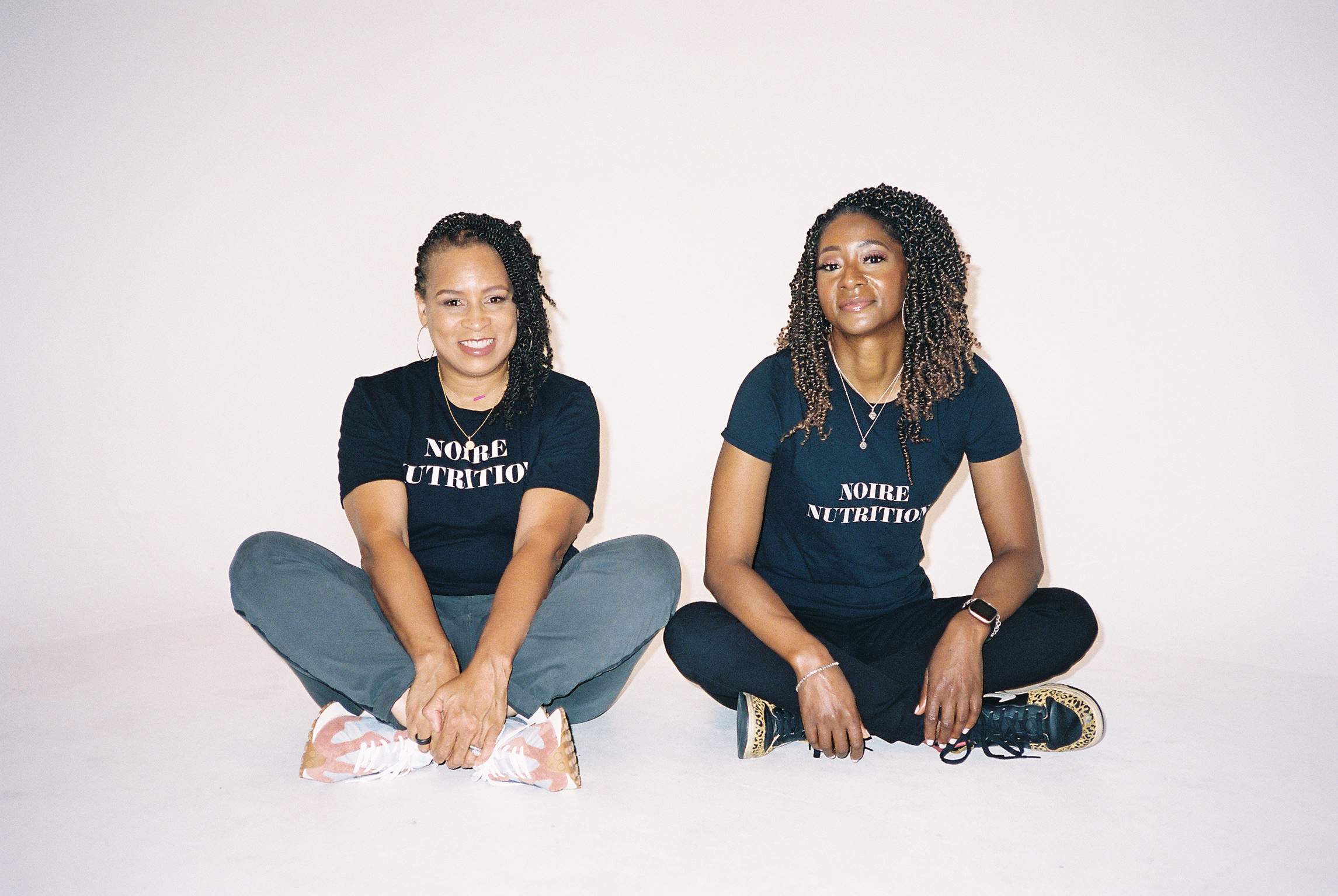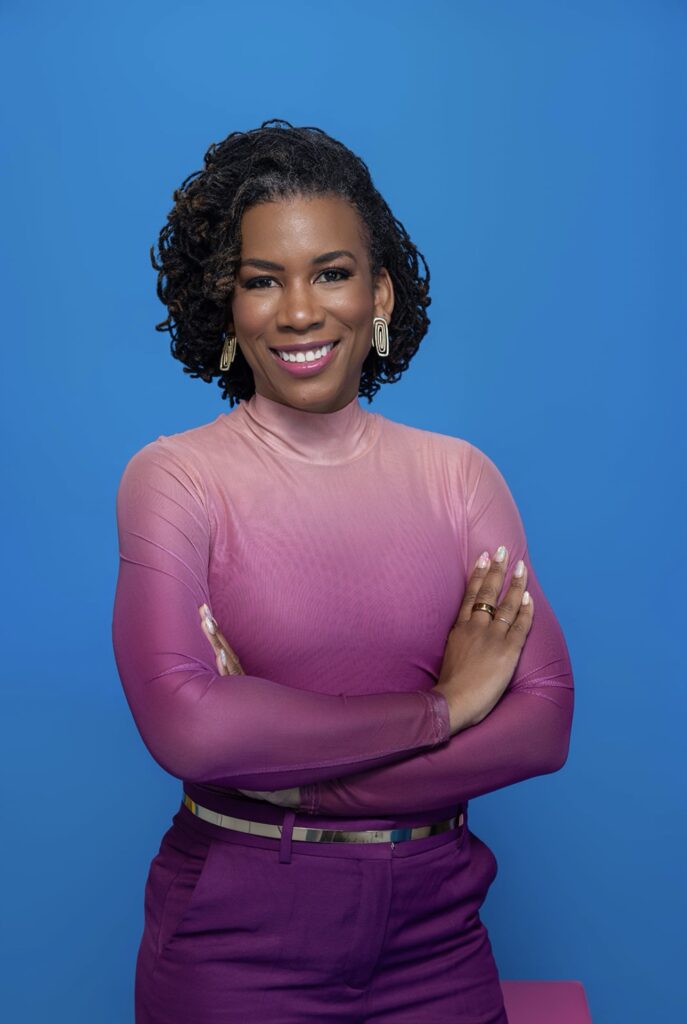Did you know having an unhealthy gut is at the core of most diseases?
The truth is, it does matter how healthy your gut is if you’re worried about your well-being. That’s why it’s important to know your gut type and to treat your gut right.
I have invited Aziza and Monica of Noire Nutrition to break things down for you.
Give us a peek into the women behind, Noire Nutrition. Tell us how the two of you came together.
Our paths crossed while attending a nutrition program. We were two of a handful of African Americans in the entire program. We bonded in a study group that I created with the intention for “us” to excel. In addition to studying, a camaraderie formed within the group, and we made sure to support each other. We started having conversations about what we wanted to do after graduating from the program and what our intentions were. We discovered through lengthy conversations that we had an “each one, teach one” mentality about nutrition. We both wanted to take what we learned back to our communities and pay it forward.
We both entered the program with health issues that plagued us and learned how to overcome some of our issues by using whole food nutrition as medicine. And just like every other black woman on the planet, we have mothers, aunts, siblings, cousins, friends, and colleagues who are struggling with health issues, and diseases that could benefit from the knowledge that we gained.
So, we decided to turn our passion and tenacity for helping women of color with nutrition into a business. And since most disease starts in the gut, we narrowed down our focus to gut health. If we help people get their gut health on track early, we help lower their chances of disease.
So many issues take place within our body that are caused by bad gut health. Can you explain gut health, the types, and why it’s important to have good gut health?
Yes, gut health is extremely important and there are a few reasons for that. Firstly, the gut is a gastrointestinal system within the body that consists of the esophagus, the stomach, the small intestine, and the large intestine. Second, having optimal gut health is key to helping your body have its defenses up because a large part of your immunity is in your gut. So, everything that we eat and drink either helps or exacerbates our immunity. Thirdly, your gut acts as a second brain and communicates with your actual brain, which means everything is connected when it comes to the functionality of health and our bodies. Lastly, 80%-90% of diseases start in the gut, so healing your gut, and maintaining good gut health is life or death.
Everything from digestion, inflammation, hormones, sleep, and stress are directly related to gut health, which is why we chose gut health as our focus. We want to help people get their health back on track and it all starts with the gut.
As far as gut types, eastern functional medicine has always categorized gut issues into 5 types: Brain gut, Digestive gut, Hormonal gut, Immune gut, and Toxic gut. There are certain imbalances and symptoms connected to each gut type and knowing your gut type helps us to know what avenues to take to heal those imbalances.
What does it mean to have a leaky gut, and why is that bad?
Leaky gut is a term used to describe damage to the cells that form the gut barrier wall of the intestines. The barrier wall acts as a security gate by letting nutrients in and blocking everything else (toxins, pathogens, bacteria, waste, etc.) from entering. So, when the barrier wall starts letting in more than just nutrients over time, it is presumed that there is a leaky gut. And because 80%-90% of our immunity is in the gut, damage to the barrier wall causes an overactivation in the immune system giving room for disease to set in.
What are some of the biggest problems people face when their gut health is not in order, and what are some at-home solutions people can use to move towards getting it back to a healthy state?
The biggest problem is diseases. There are so many symptoms and diseases associated with poor gut health: Autoimmune disease, Cardiovascular disease, Inflammation, Diabetes, Arthritis, Crohn’s disease, Depression, Eczema, Obesity, and so much more.
The best at-home solution is to replace processed foods with whole foods. Another at-home solution is to try and keep our stress levels down. Managing stress is key. Stress wreaks havoc on our gut health and our immunity. So, eating while in a calm state allows the gut to better absorb the nutrients from food. And it’s hard to not be stressed these days but adding a self-care routine helps get those cortisol levels balanced.
Adding pre/probiotics foods to your diet is also a great at-home solution. Foods like onion, garlic, apples, and artichokes feed the good bacteria in your gut. Probiotics such as sauerkraut, kefir, and kimchi help to create more of the good bacteria needed to bring balance to the gut. Sleep is another great at-home solution. Getting optimal sleep is super important. Our bodies detox and repair while we sleep. So, getting 7 to 8 hours every night is key.

Tell us about your company, your mission, and why people need your services?
Our company is called Noire Nutrition. We are a black-owned nutritional therapy practice that focuses on gut health and nutritional wellness for women of color. Our mission is to change the nutritional narrative for women of color through nutritional literacy and whole food nutrition.
The entire world is in a state of unrest. There is unrest in our environments, our lifestyles, and our bodies. Stress, depression, anxiety, and illness are running rampant, and it’s because our immune systems are compromised, our adrenals are shot, and we are metabolically inflamed from overly processed foods.
Our services are needed to get people back in balance. Back in balance with food, their bodies, and their overall health. And as the old hair club for men commercial used to say, “I’m not just the owner, I’m also a client.” We aren’t just the women behind Noire Nutrition, we also use and apply the nutritional knowledge that we have on ourselves and have seen our health issues improve and dissipate.
On a personal level, why do each of you want to change the trajectory of poor health and disease in the black community?
Aziza: When we were studying nutrition, we saw research and statistics on common diseases and disorders that were much higher in African Americans than in any other race, and it was very concerning. A lot of the statistics were on diseases that were considered “normal” in our community, like heart disease, high blood pressure, and diabetes. And I thought to myself, “Why are black women at a higher risk than other women for heart disease or diabetes, or high blood pressure?” Especially, when we live and work right alongside people of other races on a daily. It must be because we aren’t given the same information or opportunities regarding nutrition. It’s also because we were taught to believe that the food that we are eating is safe and good for us. Or that there is no other solution outside of a doctor prescribing a lifetime of medication for health issues (making pharmaceutical companies rich). I didn’t want that to be my narrative or the narrative in my community. I know that women are the backbone of every community, so if I spread nutritional education to them, it will in turn change and heal everybody.
Monica: We want to put the “food as medicine” approach back at the forefront of healing the black community. Our ancestors knew the healing power of food and we want to give black families the tools necessary to properly fuel their lives. We also want to dispel certain myths about nutrition that have caused poor health and disease in our community. Ultra-processed, hyper-palatable foods will not provide the same medicinal benefits as whole foods that are nutrient-dense and properly prepared.
Getting rid of inflammation and having good gut health is the key to healing most diseases. What is the connection between gut health and inflammation?
It’s cause and effect. Any disruption or imbalance in the gut can cause inflammation within the body, which creates an environment in the gut that limits proper digestion, lowers nutrient absorption, creates more bad gut bugs, and can ultimately create an environment for disease.
Diets high in refined starch and sugar, unmanaged stress, obesity, leaky gut, and lack of fiber consumption are the main factors for inflammation. Your immune system will work overtime trying to combat that inflammation. And your immune system needs to be busy fighting germs, toxins, and disease. So, if it must focus on fighting a leaky gut or inflammation, then it increases your risk of disease.
So many people are bombarded with medication these days, how can food be used instead for medicine to heal us?
The foods that we eat today are overly processed and contain no nutrients. Some processed foods pull nutrients and minerals from our bodies, and we need nutrients, vitamins, and minerals to thrive, function properly, and fight off disease. We get nutrients from whole foods, not medication, which is where the phrase “food as medicine” comes from. Most medications are a band-aid, not a cure.
In our practice, we help uncover the root cause of the problem and educate and support people on how to use food as medicine. It is a part of our practice to support our clients every step of their journey to better health and wellness.
How does a hormonal imbalance impact our health, and do both men and women suffer from it?
Hormones are super impactful on our health. We can’t live without hormones, that’s how important they are. They control so many bodily functions: metabolism, energy production, mineral assimilation, brain, muscle and bone formation, reproduction, and much more. Some people don’t even know that insulin is a hormone. Or that melatonin and cortisol are hormones. And they are essential to everything that we do daily.
Both men and women have hormones and are impacted when they are off-balance. When any one of our hormones is off-balance, it causes a domino effect and throws other things off physically and mentally. The foods that we eat (or don’t eat) affect our hormones. Sleep or lack thereof affects our hormones. Stress affects hormones as well. Everything affects our hormones.
How does holistic health differ from traditional health? What are the benefits of going the holistic route?
With holistic health, everything is interconnected. Every system in the body is connected and affects another. So, if one system is off-balance, it will eventually throw another system off.
Holistic health seeks to get to the root, whereas traditional health practices often isolate the problem without connecting it to anything else. Problems are usually pacified not solved.
Holistic health practitioners are detectives, paying close attention to clues and taking the time to find the culprit and solve the case. For example, if a client comes to us with a desire to lose weight, we look at many variables to find the root cause of the weight gain. Sleep habits, hydration, mineral imbalances, toxin exposure, insulin resistance, stress management, and diet give us a big-picture approach to support the weight loss goal. So, the benefits of holistic health are the fact that it addresses overall health and everything connected to it internally and externally.
What’s next for you?
We are a new business just starting, so our passion to help women of color nutritionally burns strong. We plan on increasing our clientele and eventually start offering group programs. We plan on adding more speaking engagements to our agenda in the future. So, expect to see us at a health event near you in the future. As you can see from the videos on our social media, I love to speak about nutrition. So, a podcast is in the works. Monica loves to cook and explore healthy recipes, so there are plans to expand upon that as well. The possibilities are endless at this point.
Noire Nutrition is doing amazing things in their practice. You can reach them by clicking these links: Website │Instagram │ Facebook │Twitter
Photography by: Joshua Joseph Stallings
Writer, Debbie Stokes is a contributing writer. Follow her on Instagram @iamdebbiestokes
Follow Us On Social Media!




